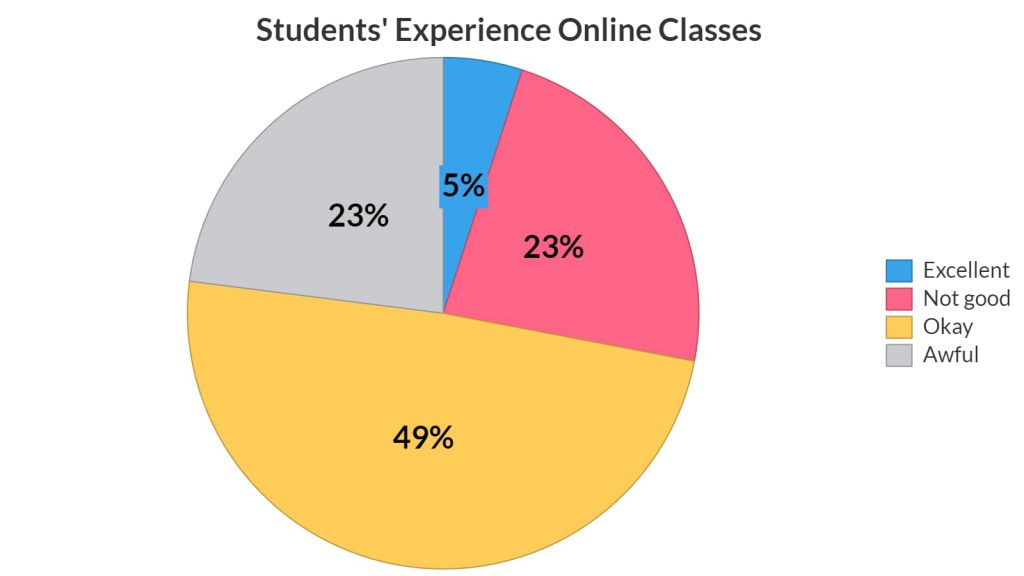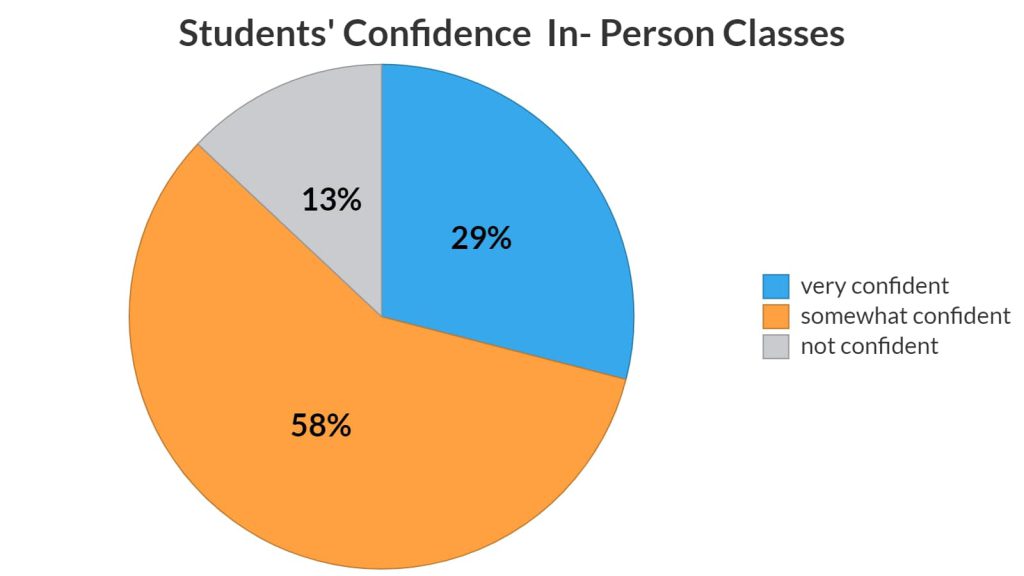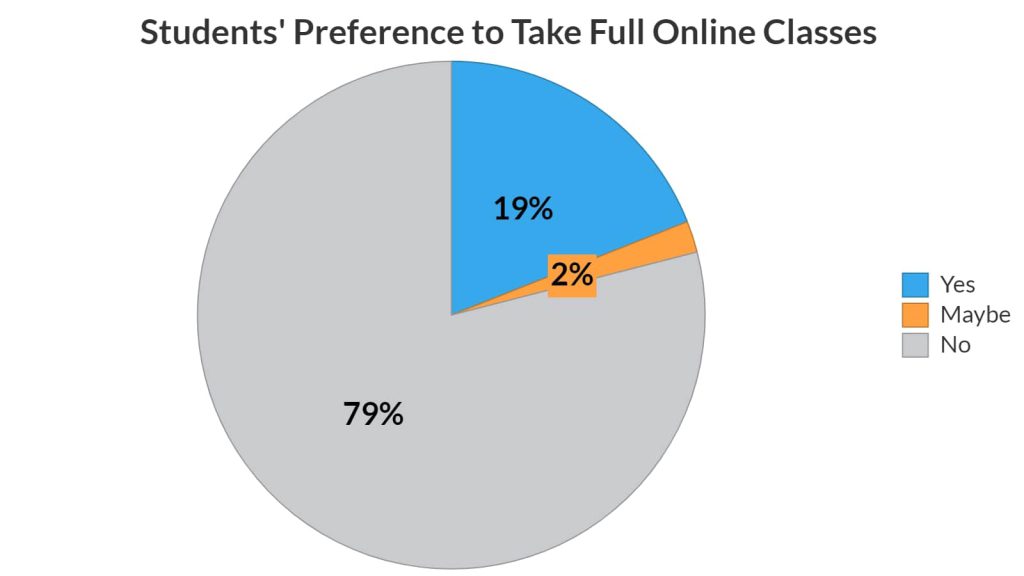By Zheng Chen, Yuqing Chen and Lubentz Precil
The COVID-19 pandemic turned an unprecedented point in American students’ lives, school’s curriculum and extracurricular activities were cancelled due to Covid restrictions. Students were pushed toward remote learning in order to continue their education. Queensborough Community College (QCC) students had choices to take synchronous, asynchronous or hybrid online classes. As remote learning became the new reality that students had to adjust and adapt, the students had to balance their study time and personal time.
My classmates Yuqing, Lubentz and I created six questions listed below in our survey to investigate how the pandemic affects students of QCC and what obstacles they faced coming back to school after the pandemic calmed down. We surveyed seventy- five students on QCC campus.
- How was your experience taking online classes during COVID?
- Did you lose your focus on your studies after the pandemic?
- How did the pandemic affect your first semester or your current semester at QCC?
- After the pandemic calmed down, what obstacles did you face coming back to school?
- How confident were you coming back to in-person classes?
- Would you go back to fully online classes?

According to our survey for the question, how was your experience taking online classes during Covid-19. 49% of students reported taking online classes were okay while 23 % of students reported not good about their experiences with the online classes. At the same time 23% of students reported that they had awful experiences with the online classes, compared to only 5% of the students who reported that the online classes were excellent. Most students were reported not good or awful because the remote learning was uninspiring for them, and they soon lose their focus on their studies after the novelty of online classes wore off. While only 15 students agreed that they were able to focus on their studies during the entire course of remote learning, most of the students reported that they struggled with concentrating during the classes and were easily distracted. Hence, they felt unmotivated to complete their assignments. In addition, students also complained that the difficulty in socializing with classmates when going fully remote. Moreover, the students prolonged exposure to LED screens caused painful eye strain.
After the pandemic calmed down, students returned to QCC campus. We surveyed the students about how confident they were coming back to in-person classes. The survey illustrated that 29% of the students answered, “very confident†because they feel easy to focus and were thrive on students’ physical engagement, while 58% of the students reported “somewhat confidentâ€. About 13% of the students do not feel confident.

The students had many concerns with coming back to in-person classes. One of the biggest concerns was that some students felt uncomfortable having face-to-face interactions with their classmates post-pandemic. Now that they were returning to in-person classes, they admitted that they needed to practice their social skills to fit in. Moreover, while some students were able to get involved with curricular and/or extracurricular activities smoothly, others reported that they needed more time to slowly return to their regular school schedule. Despite the awkward situation of re-learning the social skills, students showed optimism with the in-person classes as physically being in the classes helped them focus better and was more effective in improving their oral skills and motivated them to achieve their academic goals.
We also asked how many students would like to take full remote classes. According to our survey, 79% of the students reported against going back to full remote learning. According to these students, they complained about the lack of learning environment at home due to easy distraction, hard to communicate with the professors when not understanding the course works, unmotivated to complete the assigned tasks, and uninspired to participate in the class discussions during remote learning. At the same time, 2% of the students reported “maybeâ€, because they preferred hybrid classes to full remote classes. Lastly, 19% of the students reported “yes†because fully online classes offered flexibility with scheduling, saving communal time, and can taking more classes at the same time. To these students, they were able to learn more by going fully online classes compared to in-person classes.

In the article “The ‘guinea pig’ generation: How the pandemic shaped this year’s college freshmen,†by Amy Morona, Daniel, Ian Hodgson, Emma Folts, the authors reported the pandemic increased the difficulty of the first-year college experience. The feedback collected from students from different universities in the State was mostly negative. The online classes spent most of their time reviewing previous lessons instead of learning new materials. The students missed sport activities, lost some social skills, felt isolated from the school community, and had problems with time management. After the pandemics, the students find ways to improve their academics, catch up with friends and adapt to new school life.
In conclusion, the Covid-19 pushed students to learn through screens. Online classes have more disadvantages than advantages. QCC students experienced more challenges when learning remotely than taking in-person classes. In some cases, online classes save students’ precious time and work with their schedule. The pandemic makes online classes more available, so students have more options.




